detail profile dato s roomai noor
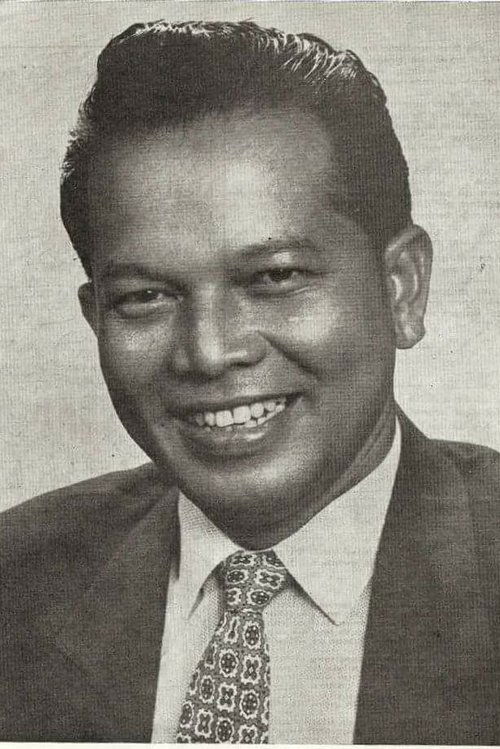
Dato' S. Roomai Noor
S Roomai Noor
atau dikenal sebagai
Riwayat Hidup
Dato' Haji S.
Roomai Noor (born as Muhammad Taib Bin Salleh; 22 February 1923 – 16 March 1996)i is a Malaysian actor,writer and director.
He was onced worked as mechanic and as a He made his acting debut in the Shaw Brothers film 'Chinta' (1948).
In 1952, he moved to Keris Film Studio (which later became Cathay-Keris Studio).
He was the father to the singer Anita Sarawak through his first marriage with Siput Sarawak and later as the father to the actress Noor Kumalasari with his second wife Umi Khaltum.
He died on 16 March 1996 at Macca Hospital in Macca, Saudi Arabia due to pneumonia while he was performing umrah with his wife,Umi Khaltum on Eid al-Fitr.
Info Pribadi
Peran Yang Di Mainkan Dato' S. Roomai Noor
 Haji Saaban the chairman of Melati...
Haji Saaban the chairman of Melati...Matinya Seorang Patriot 1984
Haji Saaban, the chairman of Melati Holdings, dies suddenly. His son Safuan suspects that the death has something to do with Melati Holding’s. He allows his brother, Saiful to avenge the death of their father. Saiful falls in love with the daughter of one of the board of directors and his desire for vengeance dissipates. Safuan feels that Saiful has betrayed the family and challenges him.
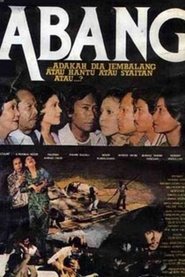 Fuad Din has been missing for 10...
Fuad Din has been missing for 10...Abang 1981
Fuad Din has been missing for 10 years. One day a telegram arrives stating that he will be returning home soon. His family receive the news with mixed feelings. When he finally returns. Fuad faces every conflict calmly and no one in the family knows that he went abroad to seek medical treatment. Tires of living in pretence, Fuad’s only wish is to be in his beloved country and with his loved ones whom he misses dearly.
 Successful police officer ASP Zamri fails...
Successful police officer ASP Zamri fails...Esok Masih Ada 1979
Successful police officer ASP Zamri fails to build a happy home. His only child succumbs to leukimia and his life falls apart. Then, he meets Marina daughter of Mr. Cheong, a banker whom he had saved from a robbery cum hostage attempt. In time, Zamri’s frienship with Marina develops into love. Marina is somehow connected to Albert., who in turn is close to Ramon., the leader of the bank robber’s gang. Out of sympathy for ASP Zamri who longs for another child, Mr Cheong convinces Marina to marry the Asp Zamri, but her mother does not bless their marriage. Zamri and Marina are blessed with a son, Jefri, who placed in the care of Faridah, Zamri’s first wife. ASP Zamri spends most of his time with Faridah and Jefri. As a result, Marina starts to feel lonely.
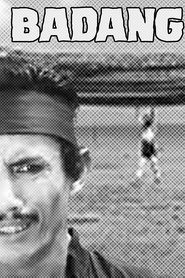 Badang is a very extraordinary person...
Badang is a very extraordinary person...Badang 1962
Badang is a very extraordinary person who is very strong and does many miraculous things with his strength after he has eaten the vomit of the water ghost who at first wanted to kill him. Eventhough he is strong there are certain things that he cant do due to the promise he has made with the water ghost. He can’t marry because he will end a dreadful death. Badan’s strength was known by the Sultan where he was appointed as a warrior of the Sultan. Apart from that he has also won many strength competitions across the country. While in all this fame he has fallen for a girl who has also fallen for him. But due to his promise to the water ghost he cant. So, who does he choose his powerful strength or his true love?
 Wahid provides a brief account of...
Wahid provides a brief account of...Gado Gado 1961
Wahid provides a brief account of his life beginning with his move to the city in search for employment after persuasion from his girlfriend, Rahmah. He soon finds himself caught in a host of sticky situations as he navigates towards finding steady employment. Gado Gado is one of the 91 sole-surviving Cathay-Keris Malay Classics film titles made during Singapore’s Golden Cinema era from the 1950s to early 1970s, and preserved by the Asian Film Archive. In 2014, the collection was inscribed onto the UNESCO Memory of The World Asia-Pacific Register, a list of endangered library and archive holdings. At 35 minutes long, the film is the only musical variety short from the Cathay-Keris catalogue.
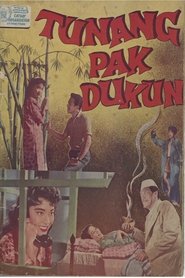 Karim Abdullah Chik and Khatijah Rose...
Karim Abdullah Chik and Khatijah Rose...Tunang Pak Dukun 1960
Karim (Abdullah Chik) and Khatijah (Rose Yatimah) are undergraduates at the University of Malaya pursuing degrees in Medicine and History respectively. They are young, progressive in their thinking, and very much in love with each other. On a visit back home, Khatijah discovers that she is arranged to be married, without her knowledge, to the local village 'lebai' (healer), Din, who is a recent widower and father of six. Khatijah is torn between her fledging love for Karim and her adherence to centuries of tradition. Determined to win the hand of Khatijah, Karim sets aside his prejudiced view of the "mystical arts" and travels deep into the wilderness of Malaysia to study under a respected traditional healer, Pak Salleh (Dollah Sarawak).
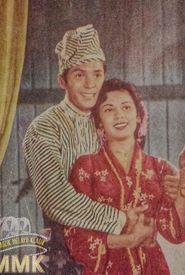 The fairy tale is about two...
The fairy tale is about two...Bawang Putih Bawang Merah 1959
The fairy tale is about two sisters, Bawang Merah and Bawang Putih. After their father dies, Bawang Merah and her mother, Labu, have to share the house with domineering Kundor and Bawang Putih. Bawang Merah has to endure more hardship when her mother dies. She is bullied, beaten and abused in every way imaginable by Kundor and Bawang Putih. As the tale goes, her mother eventually reappears – as a fish. Bawang Merah becomes happier and this puzzles both Kundor and Bawang Putih. Her ship comes in when a Prince hears her singing in the woods and marries her. Of course, Kundor is terribly unhappy that her brat, Bawang Putih, is married to none, let alone a prince. So she devises an evil scheme to destroy Bawang Merah’s marriage and get the prince to notice Bawang Putih.
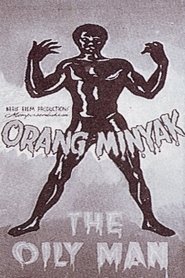 A village comes alive with fear...
A village comes alive with fear...The Oily Man 1958
A village comes alive with fear when a nefarious ‘oily man’ terrorises women in the dead of night. At their wits end, the local police enlist the help of talented police inspector Dasuki to trap and end the oily man’s mischief. Orang Minyak was digitally restored by the Asian Film Archive in 2018 using a 16mm black & white composite release print from its collection.
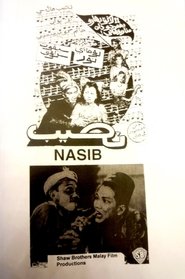 Kassim is living with his brother...
Kassim is living with his brother...Fate 1949
Kassim is living with his brother and sister-in-law when he finds out he is about to inherit all his family's wealth. Kassim, a young man who prefers to sing and play, is thrown out of his home by his brother and deprived of his wealth. He starts to lead a wandering life with two friends. One day, Kassim discovers pirate treasure. (This film is different from the 1952 film Anjuran Nasib, also directed by B.S. Rajhans).
 It tells the story of a...
It tells the story of a...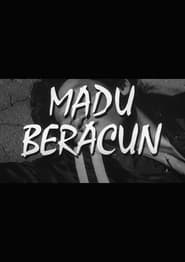 This film is about the danger...
This film is about the danger...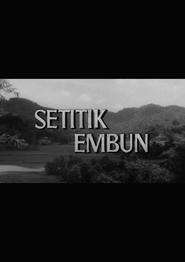 This is a film based on...
This is a film based on...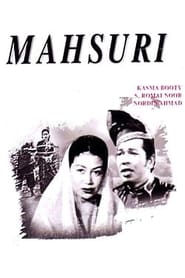 Mahsuri is a Malay film produced...
Mahsuri is a Malay film produced... This film is about Osman that...
This film is about Osman that... This film tell a story about...
This film tell a story about...